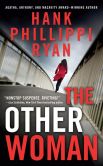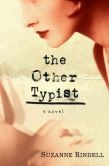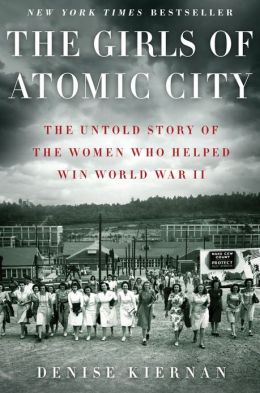 5. The Girls of Atomic City: The
Untold Story of the Women Who Helped Win World War II by Denise Kiernan
5. The Girls of Atomic City: The
Untold Story of the Women Who Helped Win World War II by Denise Kiernan
“What?” you say. “Non-fiction in
the summer? Nic, what happened to fun-in-the-sun reading?” But what could be
more fun than the war-time tale of a secret city in the mountains, populated exclusively
by women, hired to work in a mysterious complex of factories and labs without
any idea of how their jobs relate to the jobs of their colleagues? Well, the
entire tale is true. We’ve all heard of Rosie the Riveter, but the ladies of
Atomic City, hidden deep in the American countryside, were building bomb parts
and no one knew it—until now. So this summer, I’m going to celebrate the untold
achievements of the women who came before me by reading all about their hush-hush
role in winning my freedom and yours.
4. The Long Goodbye by Raymond
Chandler
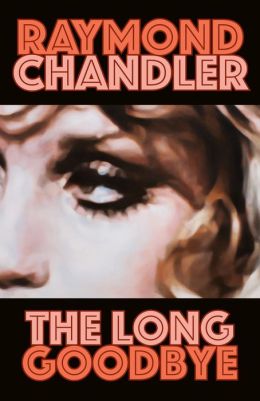 I’m an enthusiastic Chandler fan,
but somehow, I’ve never read this winner of the 1955 Edgar® for Best Novel. Many,
including Chandler himself, have said this novel is his best work. Others say
it’s his worst. So, I realized, I should decide for myself. After all,
Chandler’s work is foundational to my own. If we’re writers, we’re following in
the footsteps of others who’ve paved the way. Why not read the work of an
author who blazed the trail you follow? For me, that’s Chandler and his
Edgar®-winning work.
I’m an enthusiastic Chandler fan,
but somehow, I’ve never read this winner of the 1955 Edgar® for Best Novel. Many,
including Chandler himself, have said this novel is his best work. Others say
it’s his worst. So, I realized, I should decide for myself. After all,
Chandler’s work is foundational to my own. If we’re writers, we’re following in
the footsteps of others who’ve paved the way. Why not read the work of an
author who blazed the trail you follow? For me, that’s Chandler and his
Edgar®-winning work.
3. The Other Woman by Hank Phillippi Ryan
I first met Hank Phillippi Ryan at
a champagne reception in San Francisco. My first manuscript was up for the
Romance Writers of America Golden Heart® while her debut novel was on the short
list for the Golden Heart’s® big sister, the RITA®. She probably wouldn’t
remember me among the nervous writers who clutched a champagne flute that day,
but I certainly remember her first novel. This year, it came as no surprise to
hear her latest book won the 2013 Mary Higgins Clark Award. This summer, I plan
to enjoy Hank’s latest novel as much as I enjoyed her RITA®-nominee.
Summer is the perfect time to find a new love and that’s why I’ve got my eye on this debut novel from doctoral student, Suzanne Rindell. Kirkus is calling it a cross between a Hitchcock film and F. Scott Fitzgerald’s most famous work. So if you’ve got a crush on Jay Gatsby, and if you want to flirt with a fresh mystery about a Flapper-era police stenographer caught in the middle of a murder case, make a date with this book.
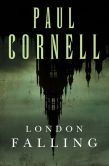
A veteran of the writing team that brought us the return of Dr. Who, Paul Cornell says he faced a genre identity crisis when it came to writing this book. And which of us writers can’t relate? Cornell believes Urban Fantasy—and maybe some Paranormal Romance—is rapidly becoming the new Horror. As a result, London Falling straddles genres. But with its new take on two cops combating evil on London’s dark streets, I can’t wait to get my hands on it, no matter how the booksellers decide to shelve it.
Now you know what I’ll be reading
this summer. When you visit the pool, if you see a woman with There’s Something
About Cherry on her toes and one of these books in her hand, that’ll be me. Feel
free to stop by and say hi. In the meantime, tell the Rockville 8. What’s on
your summer reading list?

